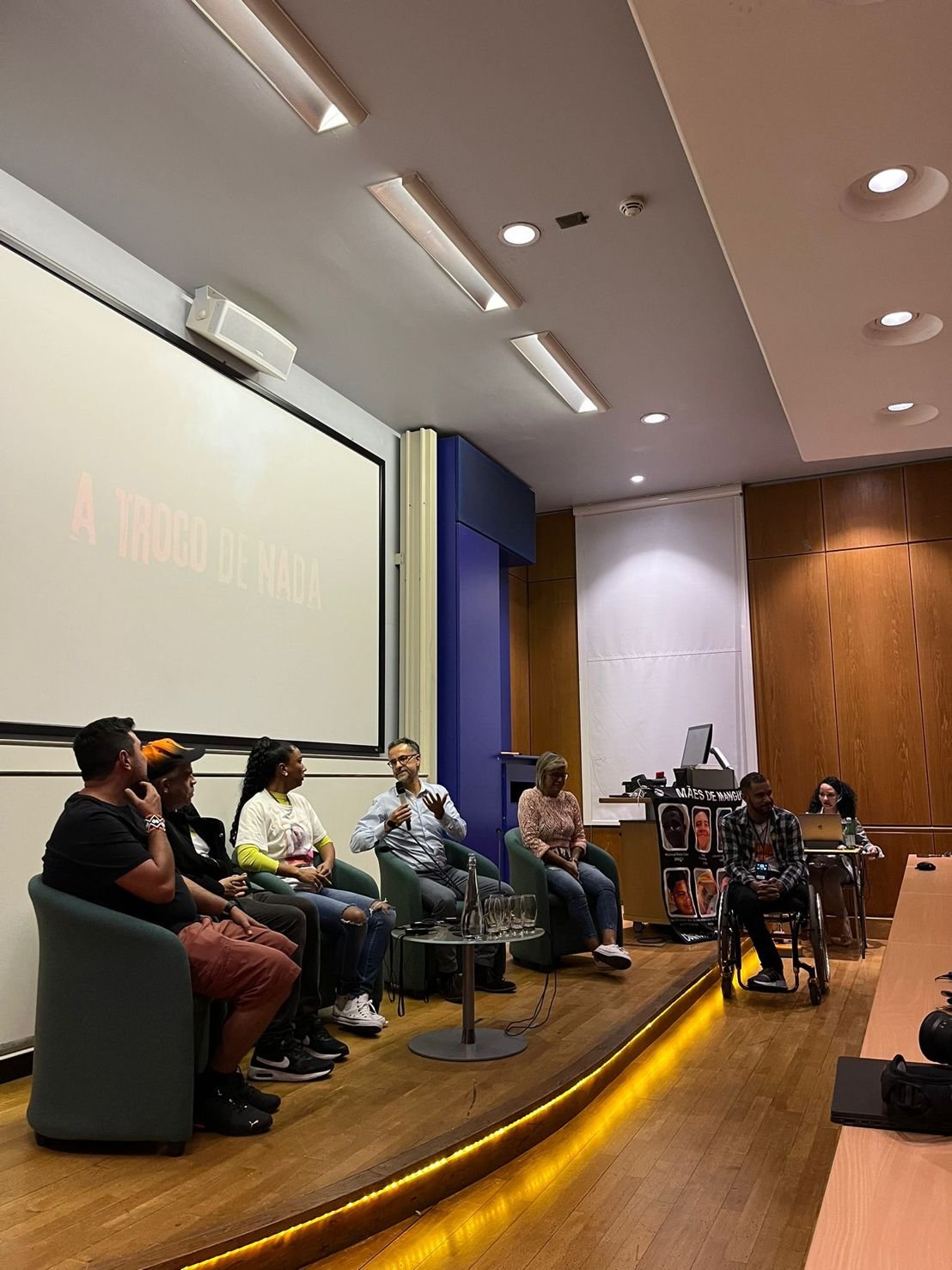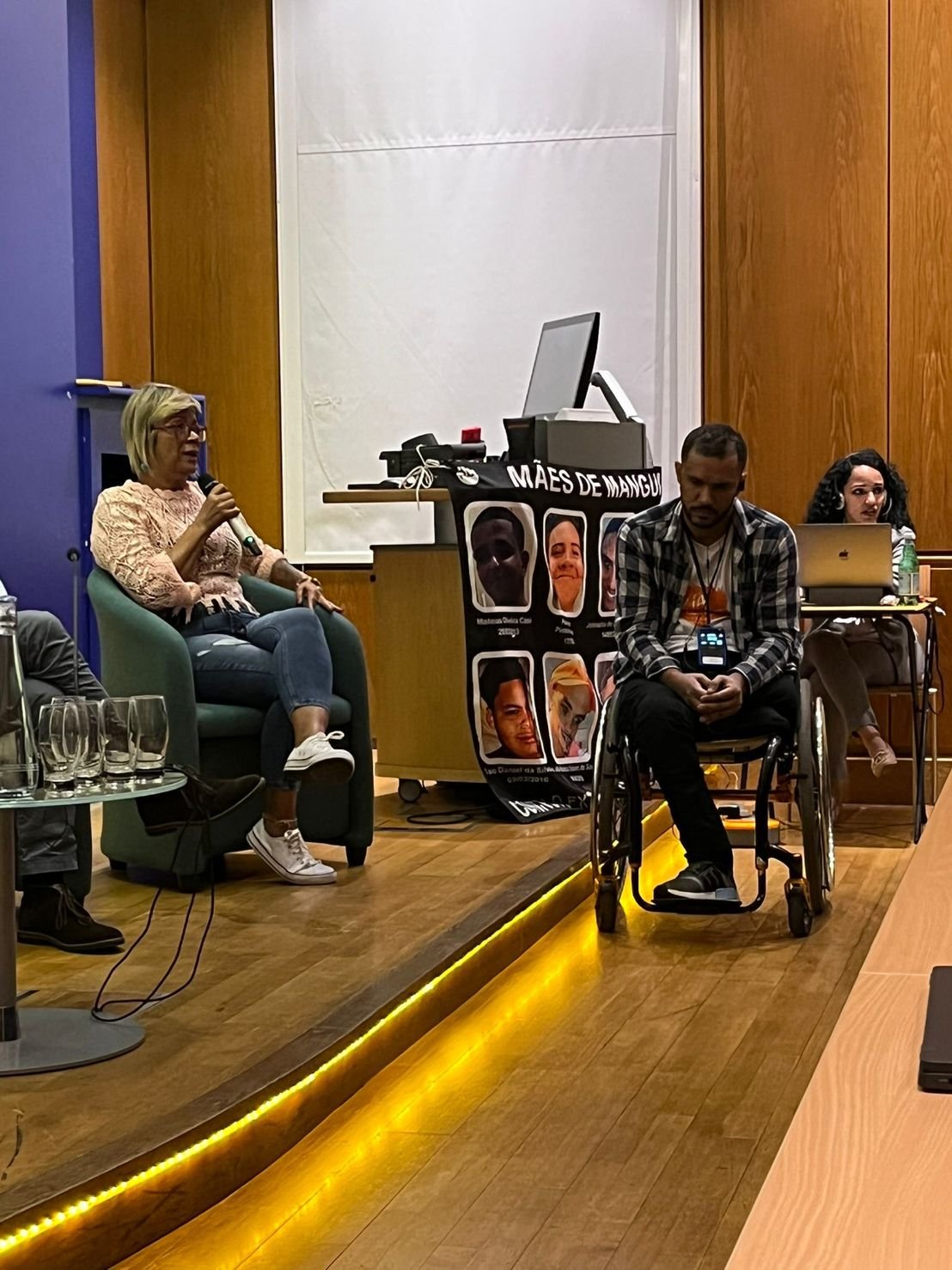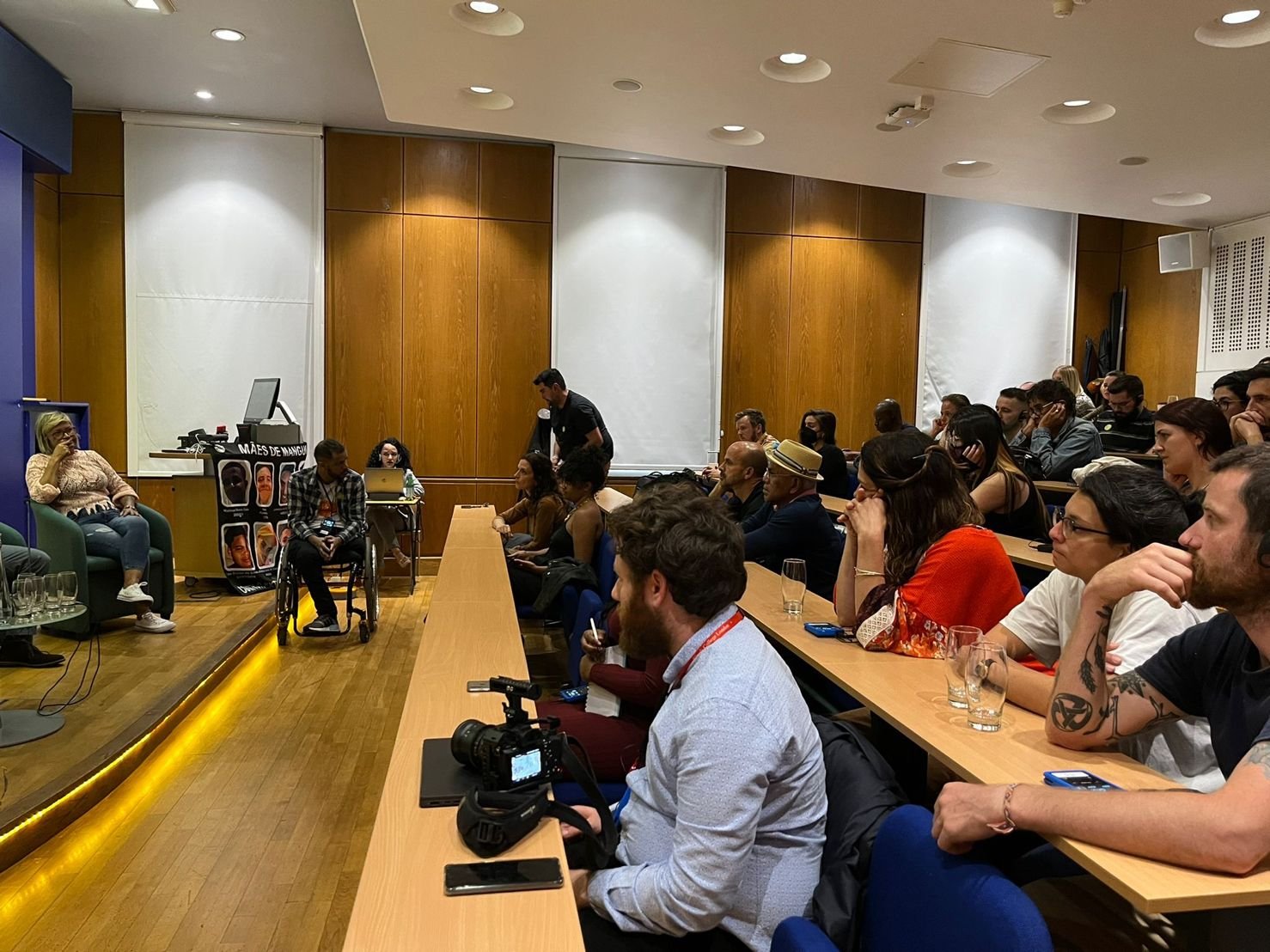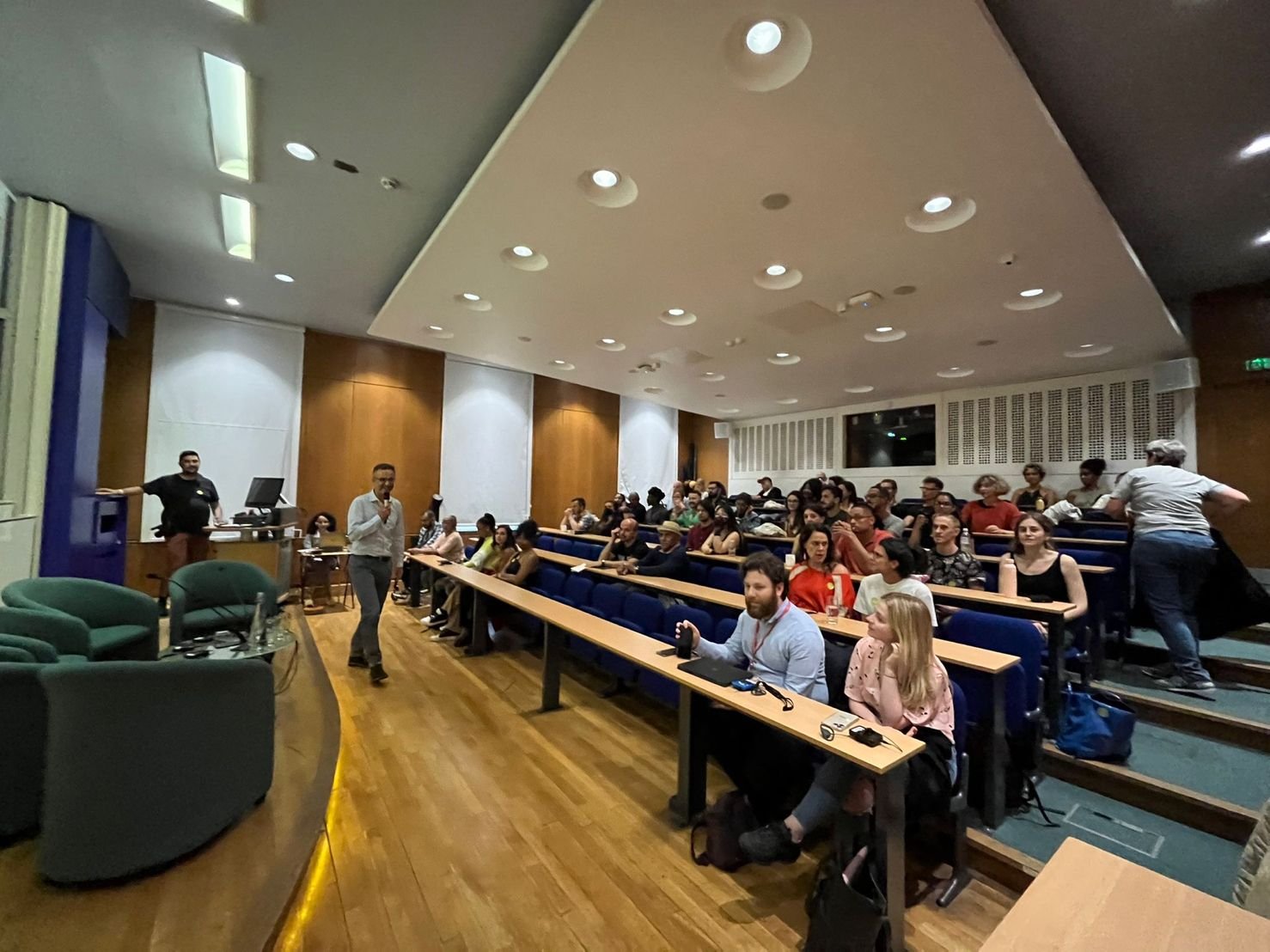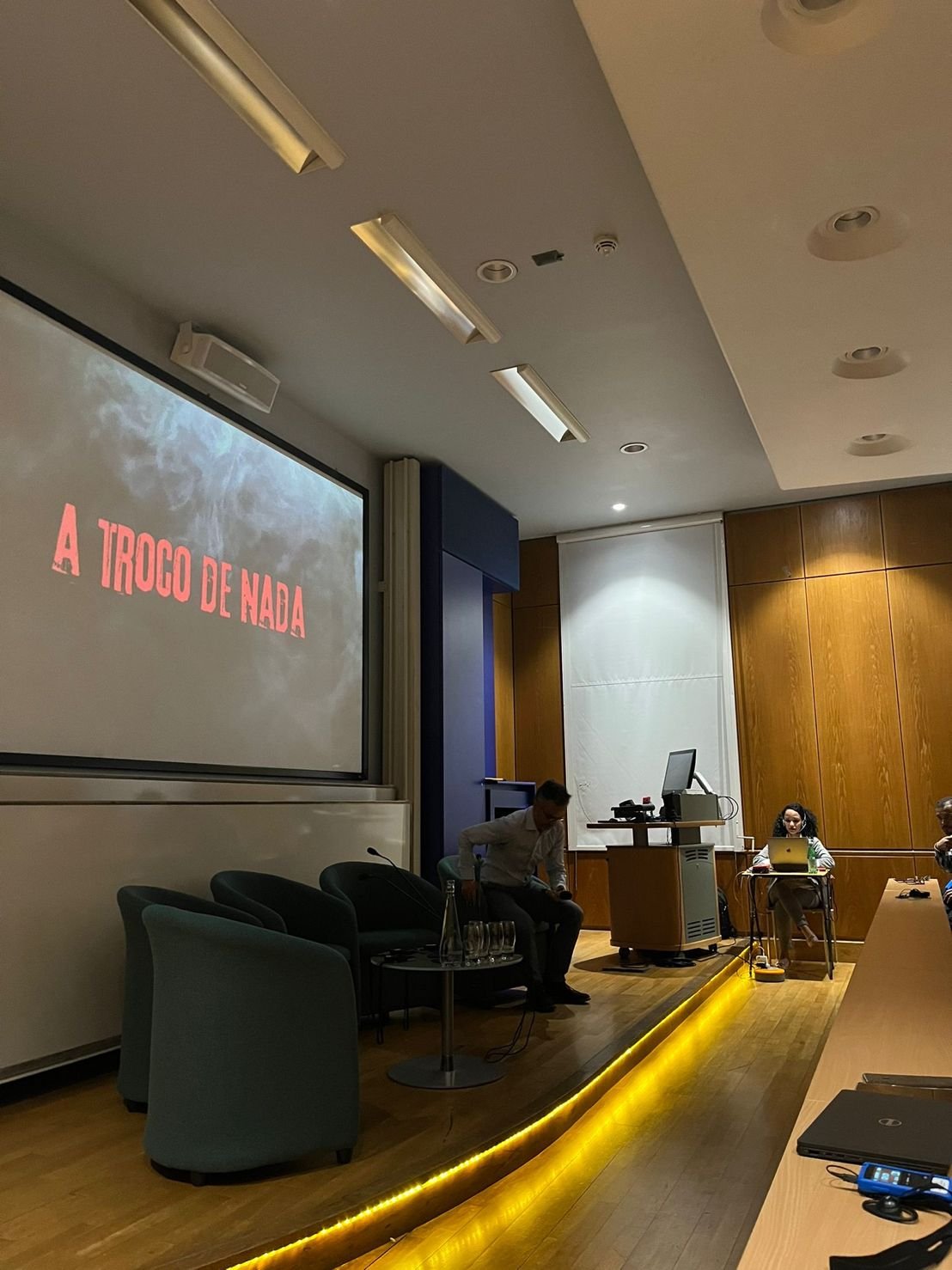Interpreting for mothers who have lost their children
Yesterday I went to King's College London to be the simultaneous interpreter of a couple of the extraordinary people behind Orphan Mothers (A Troco de Nada), a documentary on police brutality in Rio de Janeiro seen through the eyes, the accounts, and the lives of black women who have lost their children.
Additionally, it has been a huge responsibility to facilitate communication in the Q&A session. I confess I sat through the screening with a lump in my throat and cried in silence whilst watching the film next to these women and the surviving son of one of them, knowing that, when it was time for them to speak, I’d want to do my best to be the voice that would convey not only their words, but especially their grief and their strength.
I hope I have done justice in conveying how incredibly difficult, sad, infuriating and unfair being in their shoes must be. Throughout the entire event the thing I thought about the most was my own mother, who is also Brazilian, who’s also black, who also loves her children more than anything in the world, who also once had a teenage son, and how (by mere luck of the draw) she is not one of the women who have died of a broken heart after burying a child in such horrific circumstances. And yes, how I get to be where I am, and these families have wound up where they are.
If you want, you can help with their cause here.
#blacklivesmatter
